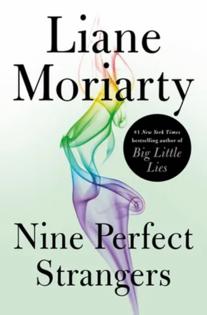How to build a cult following: Lessons from fiction’s most charismatic manipulators
Published in Mom's Advice
Why do we root for people we’d cross the street to avoid in real life? Fiction is crowded with liars, schemers, stalkers, even killers … and somehow, they have fan clubs. Whether it’s Tom Ripley’s suave cons, Amy Dunne’s razor-sharp vengeance, or Joe Goldberg’s murderous devotion, these characters inspire not just fascination but loyalty.
Part of it is the thrill of persuasion. The most memorable antiheroes and cult leaders in literature don’t simply force obedience, they invite us in. They make readers feel complicit, even charmed, as they bend entire worlds to their will. At their core, they reveal something unsettling: charisma is not about goodness, it’s about fluency in human desire. Psychotherapists describe it as“a grandiose, overinflated narcissist who seeks power by demeaning others, whilst making them believe it is for their own good or the good of humanity.”
Below are eight unforgettable characters who could build a following without ever passing out matching robes. Each offers a lesson in how charm becomes power and why we can’t stop turning the pages.
You by Caroline Kepnes
Joe Goldberg is a romantic psychopath with an intimate second-person narration that feels like a whispered confession. He convinces us that every crime is an act of love, every boundary a small price for devotion. His secret? He reframes obsession as protection and makes readers almost believe it.
Gone Girl by Gillian Flynn
Amy Dunne weaponizes perfection. By curating her image and controlling her narrative, she wins both the public and the reader, even as her schemes turn brutal. Flynn’s antiheroine proves that charisma doesn’t need to be warm or likable; it just needs to be riveting and backed by absolute conviction.
The Talented Mr. Ripley by Patricia Highsmith
Tom Ripley is charm distilled into ambition. He isn’t the loudest person in the room, but he’s always the most adaptable, shifting identities to suit whatever company he keeps. Highsmith shows how empathy, whether it’s genuine or fake, can make even the coldest manipulator feel like an intimate friend.
Sherlock Holmes by Sir Arthur Conan Doyle
Moriarty is Sherlock’s intellectual equal and ultimate foil, an arch-villain whose brilliance commands both fear and respect. He orchestrates London’s underworld from the shadows, his influence rippling outward with quiet precision. Moriarty proves that persuasion doesn’t have to be emotional; cold logic and strategic authority can be just as magnetic … and just as dangerous.
Nine Perfect Strangers by Liane Moriarty
Masha Dmitrichenko is the enigmatic director of Tranquillum House, a wellness retreat with an unsettling edge. Radiating calm authority and spiritual charm, she draws vulnerable guests into her vision of transformation … a vision that blurs the line between healing and control. Behind the serenity lies a relentless need to remake others in her image.
Lolita by Vladimir Nabokov
Nabokov’s narrator, Humbert Humbert, is a masterclass in linguistic charm. Humbert seduces the reader with wit, elegance and self-pity, drawing us dangerously close to empathy before we realize what he’s done. It’s proof that style itself can be a form of persuasion … beautiful language can hide monstrous acts.
American Psycho by Bret Easton Ellis
Patrick Bateman is narcissism in Armani: polished, stylish, and terrifyingly hollow. His flawless exterior hides a monster, and it’s that very perfection that lures us in. Bateman shows how superficial charm, wealth, and status can be just as manipulative as warmth or empathy — and far more dangerous when they disguise emptiness.
Needful Things by Stephen King
Leland Gaunt doesn’t preach, he bargains. By offering each person exactly what they crave, he turns desire into devotion. His individualized approach shows that you don’t need sermons or ideology to build a following. All you need is an uncanny understanding of human weakness.
The Bigger Picture
What unites these characters is not brute force, but emotional fluency. They listen. They flatter. They offer something irresistible: love, purpose, beauty, belonging. In fiction, we follow them not because they’re right, but because they’re magnetic. They show how easy it is to mistake control for care, obsession for love, manipulation for loyalty.
And maybe that’s why readers adore them. These characters let us explore the darker corners of persuasion from a safe distance. They remind us that the line between admiration and submission is thin and that even the smartest among us can be swayed by someone who seems to understand us better than we understand ourselves.















Comments